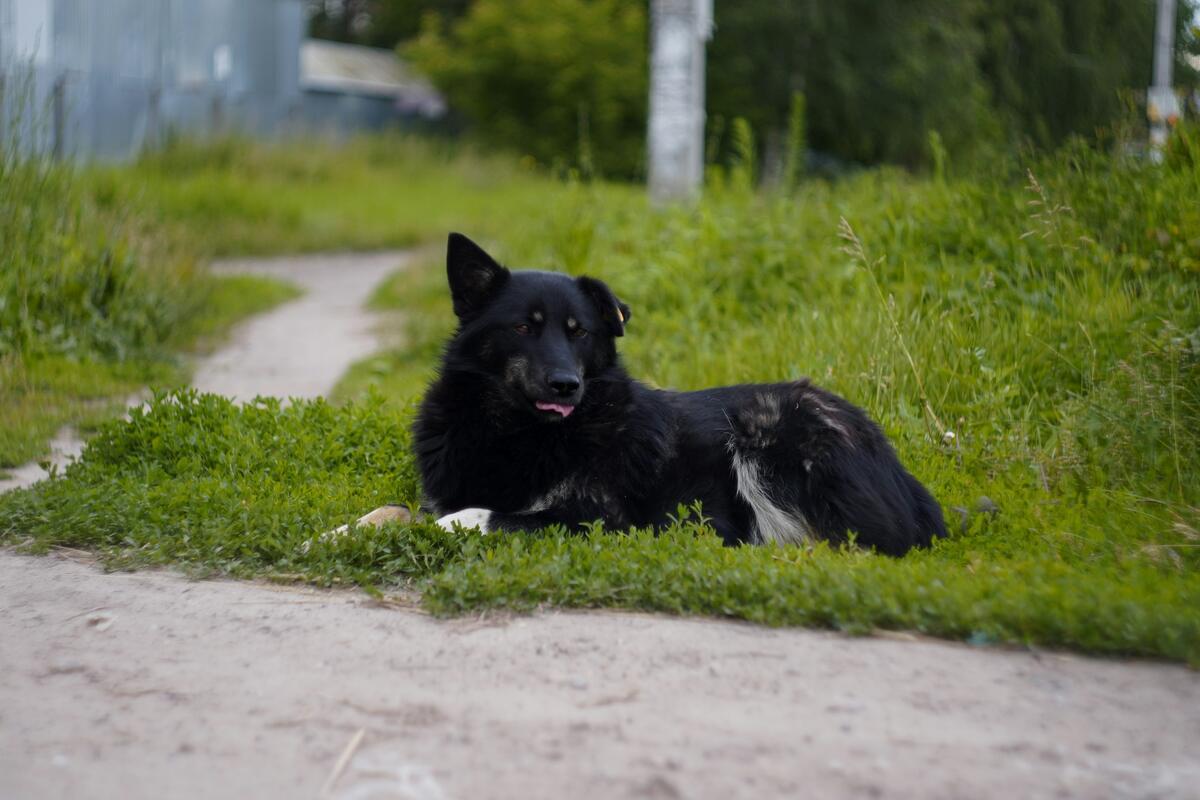Irish Doodle: Pros, Cons & Care

What Is an Irish Doodle?
Origins of the Breed
The Irish Doodle is a designer dog breed that combines the intelligence and low-shedding coat of the Poodle with the loyalty and athleticism of the Irish Setter. This crossbreed has become increasingly popular in recent years, especially with families looking for an affectionate and trainable dog. The Irish Setter contributes a playful and energetic personality, while the Poodle offers hypoallergenic fur and sharp wit.
Appearance and Characteristics
Irish Doodles are undeniably adorable with their curly or wavy coats, soulful eyes, and athletic build. Their coat color can range from deep red to apricot or even cream, depending on the parent dogs. They have a sturdy yet elegant frame and an expressive face that makes them hard to resist.
Common Traits
Irish Doodles are:
-
Highly intelligent
-
Eager to please
-
Social and friendly
-
Energetic and playful
They’re well-known for being great with kids and other pets, making them an ideal choice for families.
Irish Doodle Size
Irish Doodle size depends on whether the Poodle parent is standard or miniature. Irish Doodle Size Guide can give you a more detailed view, but here's the general breakdown:
Mini vs Standard Irish Doodle
-
Mini Irish Doodle: 13 to 17 inches tall, 25 to 35 pounds
-
Standard Irish Doodle: 22 to 28 inches tall, 40 to 75 pounds
Miniatures are better suited for apartments, while standards thrive in homes with yards.
Growth and Development Stages
Irish Doodle puppies grow rapidly in the first year. Expect your pup to hit half its adult size by 4-6 months. Full maturity usually happens around 12 to 18 months.
Temperament and Behavior
Personality of the Irish Doodle
Think of the Irish Doodle as the golden retriever of doodle breeds—loving, smart, and always ready to make you laugh. They’re eager to learn and eager to please, making training a breeze for most owners.
Family and Child Compatibility
Irish Doodles are affectionate and gentle with children. Their playful nature makes them an excellent companion for kids of all ages. Just be sure to supervise early interactions with smaller kids to prevent accidental knocks.
Interaction With Other Pets
With proper socialization, Irish Doodles get along with other dogs, cats, and even smaller pets. Early introductions and positive reinforcement go a long way.
Irish Doodle Puppies
What to Expect From a Puppy
Irish Doodle puppies are balls of energy. They’re curious, fast learners, and full of love. Expect a few mischievous moments, especially during teething.
Early Socialization Needs
Between 8 to 16 weeks is the prime time to introduce your Irish Doodle puppy to new people, places, and sounds. Socialization shapes their confidence as adult dogs.
Puppy-Proofing Your Home
Cover cords, remove small chewable items, and secure trash bins. Like toddlers, these pups explore the world with their mouths!
Grooming and Maintenance
Coat Type and Shedding
Irish Doodles usually inherit the wavy or curly low-shedding coat from their Poodle parent. While they don’t shed much, they do require regular grooming.
Bathing and Brushing Schedule
-
Brushing: 3–4 times a week
-
Bathing: Every 4–6 weeks
Use dog-specific shampoos and brushes designed for curly coats.
Nail, Ear, and Dental Care
Trim nails every 2–3 weeks, clean ears weekly, and brush their teeth at least twice a week. Preventive care keeps them healthy and vet bills low.
Training and Exercise
Intelligence and Trainability
Irish Doodles are whip-smart thanks to both parents. They thrive on mental challenges and pick up commands quickly.
Daily Exercise Requirements
They need about 60 minutes of exercise daily—walks, games of fetch, and even agility courses. A bored Irish Doodle can get into trouble.
Tips for Positive Reinforcement
Use treats, praise, and consistency. They respond best to kind leadership and structured routines.
Health and Nutrition
Common Health Issues
Irish Doodles are generally healthy but can inherit issues like:
-
Hip dysplasia
-
Progressive retinal atrophy
-
Ear infections due to floppy ears
Regular vet checkups are key.
Recommended Diet Plans
Choose a high-quality kibble or fresh food rich in protein and omega fatty acids. Consult your vet for breed-appropriate recommendations.
Vet Visits and Vaccinations
Routine vaccines and wellness exams help prevent bigger problems. Stick to a vet-approved schedule from puppyhood into adulthood.
Irish Doodle Price
Factors Affecting Cost
The Irish Doodle price varies depending on breeder reputation, size (mini vs standard), location, and generation (F1, F1B, etc.).
Upfront vs Long-term Expenses
-
Upfront costs: $1,200–$2,500
-
Ongoing costs: Food, grooming, vet care, and insurance
Breeder vs Adoption
Reputable breeders provide health guarantees, but shelters and rescues may have adult Irish Doodles needing homes at a lower cost.
Pros of Owning an Irish Doodle
Hypoallergenic Coat
Their low-shedding coat makes them a great option for allergy sufferers.
Friendly and Social Personality
They love people and want to be where the action is.
Great for Active Families
If you’re into hiking, jogging, or outdoor adventures, this breed will be your new best friend.
Cons of Owning an Irish Doodle
High Grooming Needs
That beautiful coat doesn’t maintain itself—it requires time and professional grooming.
Separation Anxiety
They don’t do well left alone for long periods. This can lead to destructive behavior if not managed.
Can Be Stubborn if Untrained
While smart, they may try to outsmart you. Consistent training is a must.
Irish Doodle vs Other Doodle Breeds
Goldendoodle vs Irish Doodle
Goldendoodles are slightly more laid-back. Irish Doodles tend to have more stamina and a sleeker build.
Labradoodle vs Irish Doodle
Labradoodles are more muscular, while Irish Doodles have a leaner, more elegant appearance.
Why Choose an Irish Doodle?
They combine brains, beauty, and bounciness like no other doodle breed. If you want an active, affectionate dog with a low-shedding coat, this might be your match.
Living Environment Needs
Best Home Setup
Irish Doodles thrive in homes with space to roam. A fenced yard is ideal.
Apartment Living Compatibility
Mini Irish Doodles can adapt to apartment life—provided they get enough daily exercise.
Fenced Yard and Safety Tips
Always supervise outdoor play and secure the yard. These pups are curious explorers!
Tips for First-Time Owners
What to Buy Before Bringing One Home
Essentials:
-
Crate
-
Leash and harness
-
Toys
-
Grooming tools
-
Food and water bowls
Mistakes to Avoid
-
Skipping early training
-
Ignoring grooming needs
-
Leaving them alone too long
Getting Support From Online Communities
Join Irish Doodle groups on Reddit, Facebook, or breed-specific forums to swap tips and share stories.
Conclusion
Irish Doodles are a fantastic blend of beauty, brains, and boundless energy. While they do require time, training, and grooming, the love and joy they bring into a home make it all worth it. Whether you're a first-time dog parent or a seasoned pet lover, the Irish Doodle can be the loyal, fun-loving companion you’ve been looking for.
If you're considering bringing one home, dive deeper with ibelu and their expert Irish Doodle guide. It covers everything you need to know about this fabulous pup!
FAQs
How big do Irish Doodles get?
Depending on whether they’re mini or standard, Irish Doodles can range from 25 to 75 pounds and 13 to 28 inches tall. You can explore more here: Irish Doodle Size
Are Irish Doodles good with children?
Yes! They’re gentle, playful, and incredibly patient—perfect for families with kids.
How much does an Irish Doodle cost?
The average price ranges from $1,200 to $2,500, depending on size, breeder, and location.
Do Irish Doodles shed a lot?
Not really. Thanks to their Poodle lineage, they’re considered low-shedding and often suitable for people with mild allergies.
How often should I groom an Irish Doodle?
Brush them several times a week and visit a groomer every 6–8 weeks to keep their coat healthy.
Please don’t forget to leave a review.






